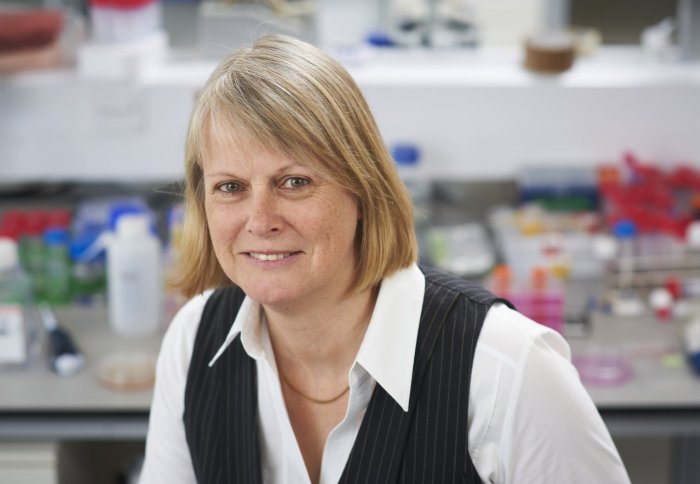Professor Deborah Smith to share career insights in Imperial's Athena Lecture

Eminent biochemist Professor Deborah Smith OBE, Pro-Vice Chancellor for Research at the University of York, will give the Athena Lecture next week.
In a talk entitled Passion, Parasites and People, held on Thursday 12 June from 18:00 – 19:00, Professor Smith will discuss her academic career journey and her pioneering research into deadly tropical diseases caused by parasites.
Professor Smith is former Deputy Chair of Imperial’s Graduate School of Life Sciences and Medicine and was the Associate Head of the Department of Biochemistry at the College before she moved to the University of York in 2004. She was awarded an OBE for Services to Biomedical Sciences in 2010 and is currently Co-Chair of the Wellcome Trust Science Funding Interview Panel.
She is the fourteenth speaker to deliver the Athena Lecture, which celebrates the achievements of women in science, technology and medicine.
We caught up with her ahead of the lecture.
Tell us about your research
My research is focussed on investigating new therapies for deadly tropical diseases spread by parasites - such as human leishmanisis and African sleeping sickness. Currently there is no effective vaccine available for these illnesses, and the drugs on the market have a level of toxicity that would be unacceptable in the UK. I’m part of a team undertaking a major scientific offensive to try and tackle these lethal diseases.
When I was 10 years old, I received my first Chemistry set and a simple microscope - these really kicked off my fascination with science
– Professor Deborah Smith OBE
I started my career as a classical biochemist, but there have been huge changes in my field since my early days as a researcher. Progress in molecular science and genetics have revolutionised the field of biology and transformed the way that we study the parasites that cause these diseases. We now use advanced DNA technologies and sophisticated imaging analyses to understand how parasites invade and survive in their hosts and use this information to pioneer new treatments and vaccines to combat the diseases that they cause.
What initially inspired you to pursue a career in science?
I’ve had a keen interest in the natural world since a very young age - I grew up in rural West-Dorset, and spent most of my time outdoors, often collecting things! When I was 10 years old, I received my first Chemistry set and a simple microscope, and these really kicked off my fascination with science and chemistry in particular. This passion has remained with me ever since.
As I got older I was inspired by the opportunity that science presents to make a positive difference to the world. It is this aim that has driven me throughout my career, and which has drawn me to my particular research area.
What has been the highlight of your academic career?
The title of my lecture, Passion Parasites and People, is telling – one of the most enjoyable parts of my career has been the people I’ve had the opportunity to work with. Up to now I’ve trained 25 PhD students and worked with many more research scientists, and I am very proud to have witnessed their successes. I feel privileged to have had a hand in developing the next generation of scientists.
If I am honest, one of the proudest moments of my career to date has been seeing my daughter get her PhD in neuroscience. I’m delighted that I was able to inspire in her the same passion for science that I hold myself.
Do you think things have improved for women in science?
There have been profound changes over the course of my career. Acceptance that women possess the skills required to become great scientists is now the norm, and I’ve witnessed the number of female scientists - particularly in my own field - rising significantly, which is very encouraging.
I feel privileged to have had a hand in developing the next generation of scientists
– Professor Deborah Smith OBE
However despite this progress, there is still work to be done. Universities must commit to removing any barriers to women’s progress in science, technology, engineering and medicine (STEM) to ensure that there are equal opportunities all the way up the career ladder. Support and mentoring is key to this, which is why Athena SWAN is so important - it provides the infrastructure and drive required to make the working environment at our universities better for all, regardless of gender.
What advice would you give to new researchers at the start of their career?
Make sure that your research area is something you’re fascinated by and are passionate about. If you do that, you’ll never tire of it.
The lecture will be held on Thursday 12 June at 18:00 - 19:00 in G34 - Sir Alexander Fleming building. Register for the event.
Article text (excluding photos or graphics) © Imperial College London.
Photos and graphics subject to third party copyright used with permission or © Imperial College London.
Reporter
Deborah Evanson
Communications Division